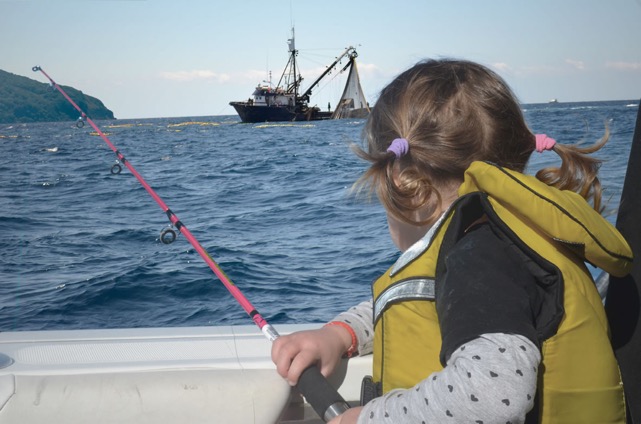From “Business Desk”, article by Jem Traylen, 11 July, 2022

Proposed reforms to streamline fisheries decision-making should be dumped as the government can’t be trusted to use them responsibly, says a coalition of environmental groups.
The Deepsea Conservation Coalition (DSCC) told a Parliamentary select committee that the government’s fisheries manager, the Ministry for Primary Industries (MPI), tends to follow the interests of industry rather than listen to those representing sustainability concerns.
However, industry representatives said the streamlined approach is considered best practice internationally and blamed poor drafting of the bill for much of the opposition.
The primary production committee is currently hearing submissions on the fisheries amendment bill, which allows for pre-set decision rules to streamline government decisions on how much of each stock of fish can be harvested (the “total allowable catch” or “TAC”).
The use of pre-set rules is opposed by environmentalists, most of the recreational fishing lobby and major iwi interests such as Ngai Tahu.
Other parts of the bill are more widely supported including those that deal with installing cameras on commercial fishing boats and which clarify the rules on which fish must be landed (and counted against quota), and which can be discarded at sea.
MPI wrote in the bill’s regulatory impact statement that since the fisheries quota management system was introduced, adjustments to the TACs for several stocks have been very infrequent and many TACs have not been changed at all.
MPI said it only has the capacity to adjust catch limits for 10 to 30 stocks annually.
“This means that some of our adjustments are not as timely as they could be and may lag behind changes in the abundance of some stocks.
“This is a lost utilisation opportunity if the stock increases well above a sustainable level of harvest and a sustainability risk if the stock decreases and the TAC is not adjusted.”
Opposition surprises
The government and industry appear to have been taken by surprise by the opposition to bringing in pre-set decision rules even though a similar approach is already well established in some fisheries.
DSCC spokesperson Karli Thomas said they were deeply concerned that the pre-set approach would effectively remove public consultation from the process, saying MPI “… simply does not have the track record or the trust of New Zealanders to act in the public interest and in the interest of our biodiversity and taonga”.
Thomas said a similar approach called “harvest control rules” was already being used to guide TAC decisions in rock lobster fisheries but after failing to respond to the decline in several of the stocks, major cuts to the TAC had to be made by the minister.
“The harvest control rules alone would have seen that fishery continue to sleepwalk into collapse.”
She said MPI could use the existing provisions in the Fisheries Act to put in harvest control rules, which they did not oppose in principle: “It’s the removal of public consultation at later stages that we are really concerned about.”
At present, harvest control rules do not have the weight of law and can only be used as a guide for decision-making.
Chief executive of the Rock Lobster Industry Council, Mark Edwards, told MPs that harvest control rules had been used successfully to manage NZ’s rock lobster fisheries for over 20 years and were regarded as best practice fisheries management by other developed fisheries jurisdictions, by the UN’s Food and Agriculture Organisation and by NGOs such as the Pew Foundation.
Not a Good J
However, Edwards didn’t think the bill did a very good job of setting up a clear framework for using pre-set decision rules and gave the minister too much leeway in how decisions are made.
He said the current drafting allowed the minister complete discretion to adjust the TAC anywhere within an approved range resulting in highly uncertain outcomes and a highly politicised process that was unsatisfactory for all.
“This is the opposite of what decision rules were supposed to achieve.”
He said harvest control rules for rock lobster and other fisheries, such as paua, are formulated through a comprehensive engagement process to arrive at a formula that is used to adjust the TAC based on data generated from monitoring the stock.
The process of developing the decision rule, if done properly, requires extensive consultation and engagement with all fishery stakeholders and unlike the standard TAC decisions, encourages stakeholders to reach an agreement on management targets, information inputs, and analytical models prior to the decisions being made.
“The upfront engagement required to develop an agreed decision rule helps shift stakeholder responses from tactical to more strategic and helps depoliticise TAC decision making.”


Surely there needs a thorough (not a whitewash) overhaul of the Quota Management System and another on the Ministry of Fisheries? I have never trusted Ministry of Fisheries (MPI) although individuals may be trustworthy but are gagged by the bureaucracy.
I wouldn’t trust anyone involved in a Government Department
Something fishy going on here; such a big change even if best practice elsewhere needed to be consulted on. Doesn’t give you much hope if there isn’t even input on the rules let alone the TAC. Imagine the pressure/opp for graft that would come on anyone associated with the decision. Too tempting to fudge numbers.